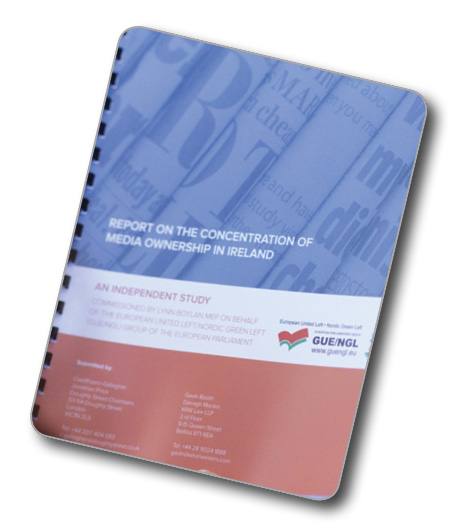No country for media moguls


The concentration of Irish media ownership has come under increasing scrutiny in recent years. Now a recent report commissioned to investigate the issue has forced the issue into the public discourse.
The plurality of Irish media ownership has faced criticism in the wake of a legal paper titled ‘Report on the Concentration of Media Ownership in Ireland’. Identified as the two most dominant entities in the sphere of Irish media are RTÉ as the national broadcaster and Forbes-listed billionaire Denis O’Brien.
Irish media has, traditionally, retained a healthy standard of rigorous competition in the realm of print. Within the broadcast market, however, Raidió Teilifís Éireann has enjoyed a largely unchallenged domination since its establishment in 1926. New News Corp, Rupert Murdoch’s media empire, is the third-largest media entity in Ireland. Its assets now include seven radio stations across the island as well as a substantial series of publishing holdings.
The report, commissioned by Sinn Féin MEP Lynn Boylan, was jointly submitted by London-based Doughty Street Chambers and Belfast human rights firm KRW Law. Three of the four legal professionals behind the report are Irish. County Down men Gavin Booth and Darragh Mackin came together with Dubliner Caoilfhionn Gallagher and UK barrister Jonathan Price to produce the study.
Earlier this year, the EU Commission produced a report examining media plurality within 19 EU member states. The report prepared by Roddy Flynn constituted the Irish segment of a Europe-wide monitoring of the risks for media pluralism tendered to the Centre for Media Pluralism and Media Freedom by the European Commission. A scorecard system was used to indicate risk with regards to media plurality. Scores fell between 0.00 and 1.00, with those over 0.66 regarded as being “high risk”. In the category for concentration of media ownership, Ireland scored in excess of 0.70.
Moreover, the reports analysis extends beyond the clustering of media ownership. Also flagged is the high volume of legal proceedings initiated by Denis O’Brien. Since 2010, O’Brien has issued 21 High Court proceedings, including 12 against media organisations. This record does not take account of the instances whereby media outlets, such as the satirical Waterford Whispers News, acquiesced under the mere threat of legal action alone.
In relation to the frequency of such action, the Doughty Street/KRW Law report contends: “Any wealthy individual bringing such a large number of claims seeking to restrict press coverage of their business dealings would raise concerns regarding freedom of expression and the potential for such litigious profligacy to have a ‘chilling effect’ on newsgathering and reporting in the public interest.” In addition, due to the nature of Ireland’s defamation laws, print media is reluctant to risk publishing material which could provoke proceedings which potentially carry high damage awards.
The report concludes: “There are extremely grave concerns about the high concentration of media ownership in the Irish market, and in particular regarding the position of [Independent News and Media] and Mr Denis O’Brien.” It continues: “Accumulation of communicative power within the news markets is at endemic levels and so Ireland has one of the most concentrated media markets of any democracy.”
It adds: “There are very grave concerns about the situation in Ireland, and the threats to diversity, plurality and freedom of expression.” The report recommends that these concerns are addressed, and rejects the existence any legal bar to tackling the status quo. Conversely retrospective action may not only be constitutionally legitimate but also permissible under EU law and the European Convention on Human Rights.
To achieve this, the report recommends the formation of “a cross-disciplinary Commission of Inquiry” as well as proposing that the Council of Europe issue fresh counsel on media pluralism to supersede the existing 1999 standards.

However, the report also recognises that any retrospective attempt to resolve the matter would be exceptionally difficult and would entail “affecting property rights, impacting upon existing market, and potentially raising procedural fairness questions”. There is no framework in place to retroactively reverse the high concentration of control which already exists.
In response, Denis O’Brien rejected the findings of the report. O’Brien emphasises a perceived failure to focus on RTÉ as the largest media entity, which transcends all formats and is subsidised with a significant volume of public money.
Intensely critical of Lynn Boylan’s hand in commissioning the report and referring to her party as “Sinn Féin/IRA”, O’Brien contends: “The cost of this report won’t have bothered them too much. They collected €20 million over 20 years in the US.”
On the other hand, the National Union of Journalists welcomed calls for action which would ensure greater diversity in media ownership. Irish Secretary Séamus Dooley asserts: “We believe that the Government must show leadership in setting up a commission on the future of the media in Ireland. Central to that debate is the issue of ownership and control.” The report, he says, has significantly contributed to making the issue one of public debate. Similarly, writing for his daily blog with The Guardian, Roy Greenslade, a journalism professor at City University London, outlines that O’Brien’s media assets make him “the country’s major private media mogul” and, consequently, “such a concentration of ownership poses potential threats to Ireland’s democracy”.
Currently, O’Brien is the largest shareholder (29.9 per cent) in INM, the news and media group which publishes the Irish Independent, Sunday Independent, The Herald, Sunday World, The Star, The Belfast Telegraph and Sunday Life. The company also publishes 13 regional newspapers and recently agreed a deal to acquire seven more through the buy-out of the Celtic Media Group. Commenting on this latest deal, INM Chief Executive Robert Pitt outlines: “It is a clear objective of INM to support and strengthen its offering of national and regional newspapers and consolidation, as exemplified by this transaction, is the optimum way to protect the Group’s titles into the future.”
In addition to this significant print empire, O’Brien is also the principal shareholder of Communicorp which owns and operates a selection of media outlets, primarily commercial radio. The portfolio includes Newstalk, Today FM, Dublin’s 98FM, SPIN 1038 and SPIN South West and, according to DCU academic Roddy Flynn, this accounts for 20 per cent share of the Irish radio market. Communicorp disputes this figure and wrote to Flynn to ask for the finding to be changed to 16 per cent.
There are no maximum thresholds imposed upon media ownership in Ireland. However, the Competition and Consumer Protection Act (2014) emphasises: “[the] undesirability of allowing any one undertaking to hold significant interests [in excess of 20 per cent] within a sector or across different sectors of media business in the State.”





